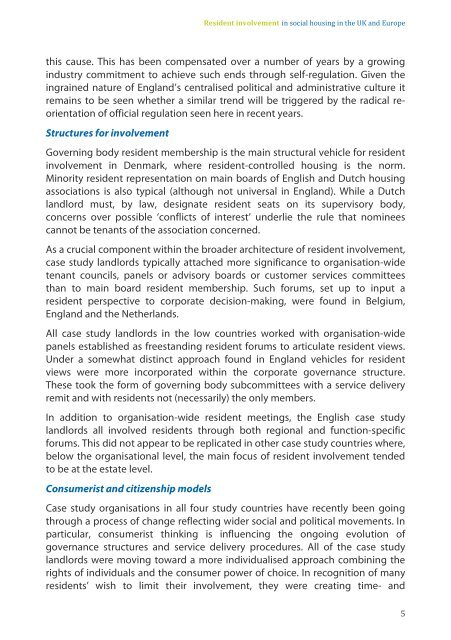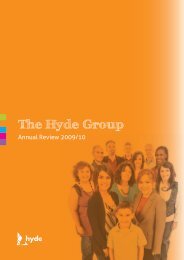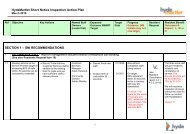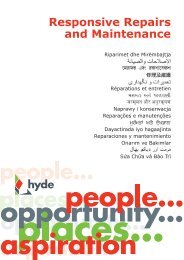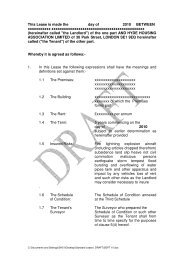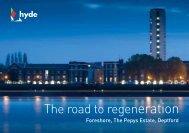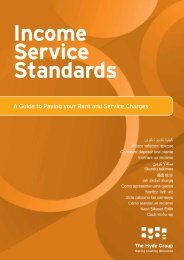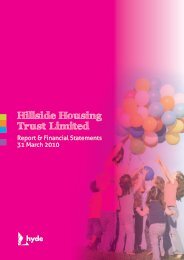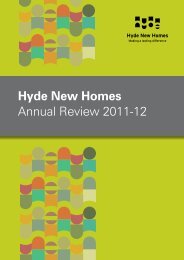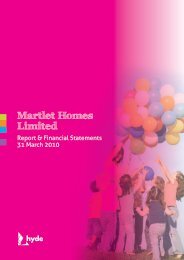Resident involvement - Hyde Housing Association
Resident involvement - Hyde Housing Association
Resident involvement - Hyde Housing Association
Create successful ePaper yourself
Turn your PDF publications into a flip-book with our unique Google optimized e-Paper software.
<strong>Resident</strong> <strong>involvement</strong> in social housing in the UK and Europe<br />
this cause. This has been compensated over a number of years by a growing<br />
industry commitment to achieve such ends through self-regulation. Given the<br />
ingrained nature of England’s centralised political and administrative culture it<br />
remains to be seen whether a similar trend will be triggered by the radical reorientation<br />
of official regulation seen here in recent years.<br />
Structures for <strong>involvement</strong><br />
Governing body resident membership is the main structural vehicle for resident<br />
<strong>involvement</strong> in Denmark, where resident-controlled housing is the norm.<br />
Minority resident representation on main boards of English and Dutch housing<br />
associations is also typical (although not universal in England). While a Dutch<br />
landlord must, by law, designate resident seats on its supervisory body,<br />
concerns over possible ‘conflicts of interest’ underlie the rule that nominees<br />
cannot be tenants of the association concerned.<br />
As a crucial component within the broader architecture of resident <strong>involvement</strong>,<br />
case study landlords typically attached more significance to organisation-wide<br />
tenant councils, panels or advisory boards or customer services committees<br />
than to main board resident membership. Such forums, set up to input a<br />
resident perspective to corporate decision-making, were found in Belgium,<br />
England and the Netherlands.<br />
All case study landlords in the low countries worked with organisation-wide<br />
panels established as freestanding resident forums to articulate resident views.<br />
Under a somewhat distinct approach found in England vehicles for resident<br />
views were more incorporated within the corporate governance structure.<br />
These took the form of governing body subcommittees with a service delivery<br />
remit and with residents not (necessarily) the only members.<br />
In addition to organisation-wide resident meetings, the English case study<br />
landlords all involved residents through both regional and function-specific<br />
forums. This did not appear to be replicated in other case study countries where,<br />
below the organisational level, the main focus of resident <strong>involvement</strong> tended<br />
to be at the estate level.<br />
Consumerist and citizenship models<br />
Case study organisations in all four study countries have recently been going<br />
through a process of change reflecting wider social and political movements. In<br />
particular, consumerist thinking is influencing the ongoing evolution of<br />
governance structures and service delivery procedures. All of the case study<br />
landlords were moving toward a more individualised approach combining the<br />
rights of individuals and the consumer power of choice. In recognition of many<br />
residents’ wish to limit their <strong>involvement</strong>, they were creating time- and<br />
5


